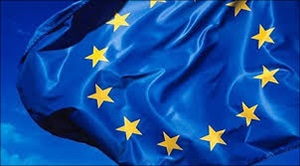 Croatia’s accession to the EU membership on 1 July 2013 reflected changes to the status and the role of the Croatian Parliament. Namely, legislative and non-legislative acts adopted at the EU level are either directly applicable in Croatia or Croatia is obliged to transpose them into its national legislation. When adopting such acts, Croatia is represented in the Council of the European Union, as a legislative body, by the Croatian Government. In the other legislative body of the European Union, the European Parliament, Croatian citizens are directly represented by Members of the European Parliament elected in Croatia.
Croatia’s accession to the EU membership on 1 July 2013 reflected changes to the status and the role of the Croatian Parliament. Namely, legislative and non-legislative acts adopted at the EU level are either directly applicable in Croatia or Croatia is obliged to transpose them into its national legislation. When adopting such acts, Croatia is represented in the Council of the European Union, as a legislative body, by the Croatian Government. In the other legislative body of the European Union, the European Parliament, Croatian citizens are directly represented by Members of the European Parliament elected in Croatia.
Conducting European affairs in the Croatian Parliament implies the Parliament’s participation in the decision-making process at the level of the European Union through the activities of the Croatian Parliament arising from the membership of the Republic of Croatia in the European Union. The Croatian Parliament's participation in European affairs is regulated by Article 144 of the Constitution of the Republic of Croatia, the Act on the Co-Operation of the Croatian Parliament and the Government of the Republic of Croatia in European Affairs and the Standing Orders of the Croatian Parliament.
The Parliament conducts European affairs indirectly by monitoring the activities of the Government in the institutions of the European Union and directly by exercising the powers conferred on national parliaments by the Treaty of Lisbon. The powers of the Croatian Parliament in European affairs are as a rule carried out by the European Affairs Committee while the Foreign Affairs Committee is in charge of the issues pertaining to the Common Foreign and Security Policy. The European Affairs Committee closely cooperates with other working bodies of Parliament that follow the policies of the European Union each within its own remit.
The Standing Orders of the Croatian Parliament provide for the involvement of all working bodies and members of Parliament in European affairs. Members of the European Parliament elected in Croatia may participate in the sessions of all working bodies of the Croatian Parliament.
The Parliament directly participates in the decision-making process in the European Union by monitoring compliance with the subsidiarity principle in the proposals of legislative acts and legislative acts of the EU and by participating in the procedures of revising the Treaties and implementing the passerelle clause. Exchange of views within the framework of political dialogue between national parliaments and the Commission is also a form of direct participation in the decision-making process.
The Croatian Parliament indirectly participates in the decision-making process in the European Union by supervising the activities of the Government in the institutions of the European Union.
Pursuant to the provisions of the Act on the Co-Operation of the Croatian Parliament and the Government of the Republic of Croatia in European Affairs and the Standing Orders of the Croatian Parliament, the Parliament monitors the work of the Government in the institutions of the European Union by adopting conclusions on the positions of the Republic of Croatia and the documents of the European Union on the basis of which the Government acts in institutions. by holding debates on the meetings of the European Council and the Council of the European Union and by participating in the procedure for proposing candidates for the institutions and bodies of the European Union.
In the procedure of consideration of EU documents and the relevant positions of the Republic of Croatia, in the discussions on the meetings of the Council of the European Union and in the procedure of nominating candidates for EU institutions and bodies, the powers of the Croatian Parliament are as a rule executed by the European Affairs Committee.
